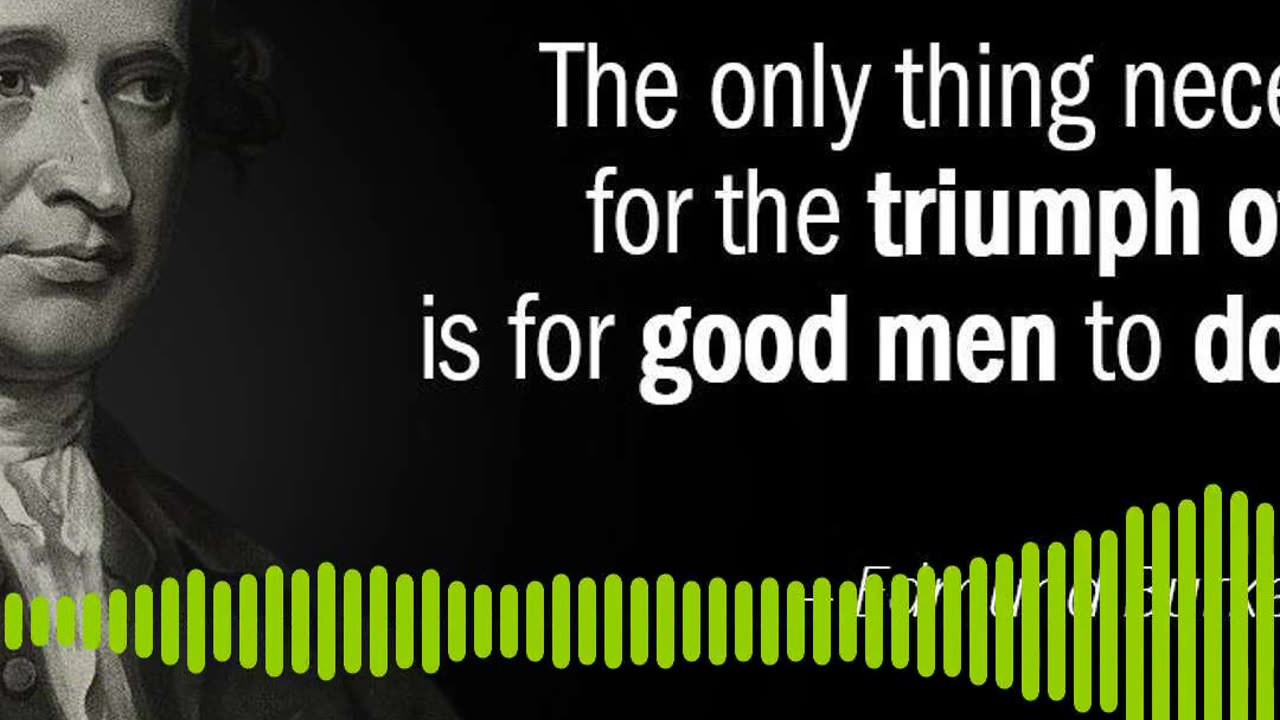Premium Only Content

dotpaw podcast - “The only thing necessary for the triumph of evil is for good men to do nothing.”
The phrase "that good men do nothing" is often attributed to the 18th-century philosopher Edmund Burke, although the exact wording may vary. The essence of this saying suggests that when individuals witness wrongdoing or injustice and choose to remain passive or silent, they effectively condone or enable that behavior to continue.
Avoiding the trap of inaction when faced with wrongdoing or injustice involves cultivating a sense of moral courage and taking proactive steps to address such issues. Here are some ways to avoid falling into the pattern of doing nothing:
1. **Educate Yourself**: Stay informed about social issues, human rights, and ethical principles. Understanding the complexities of various issues will empower you to recognize injustice when you encounter it.
2. **Speak Up**: Don't be afraid to voice your concerns when you witness injustice or wrongdoing. Use your voice to advocate for those who may not have the opportunity to speak for themselves.
3. **Stand Up for Others**: Support and defend the rights of others, especially those who are marginalized or oppressed. Be an ally to those who are facing discrimination or injustice.
4. **Take Action**: Take concrete steps to address the issues you care about. This could involve volunteering for organizations that work on social justice causes, participating in peaceful protests, or supporting legislative changes.
5. **Lead by Example**: Be a role model for others by demonstrating ethical behavior and standing up for what is right, even when it's challenging. Your actions can inspire others to do the same.
6. **Use Your Resources**: Utilize your skills, resources, and networks to effect positive change. Whether it's through donating money, offering your time and expertise, or leveraging your social connections, find ways to contribute to causes you believe in.
7. **Promote Dialogue and Understanding**: Engage in constructive conversations with others about social issues. Encourage open-mindedness, empathy, and critical thinking, even when discussing contentious topics.
8. **Hold Others Accountable**: Hold individuals, organizations, and institutions accountable for their actions. Demand transparency, fairness, and accountability from those in positions of power.
9. **Never Underestimate Your Impact**: Remember that even small actions can make a difference. Every effort to combat injustice contributes to a collective movement for positive change.
10. **Reflect and Learn**: Continuously reflect on your own values, biases, and actions. Be open to learning from your experiences and the perspectives of others, and be willing to adjust your approach accordingly.
-
 LIVE
LIVE
LFA TV
22 hours agoLFA TV ALL DAY STREAM - MONDAY 7/28/25
1,015 watching -
 LIVE
LIVE
freecastle
6 hours agoTAKE UP YOUR CROSS- STOP the Hate From State to State!
225 watching -
 1:11:04
1:11:04
vivafrei
3 hours agoWhat Did Bongino See? The Epstein "Privilege"! Canada Has Become a Dangerous JOKE & MORE!
90.8K73 -
 2:07:48
2:07:48
The Quartering
5 hours agoToday's Breaking News With Josie The Red Headed Libertarian, Hannah Claire & Luke Rodkowski
124K32 -
 LIVE
LIVE
Akademiks
4 hours agoDrake Tries for another #1?? Kodak vs YB still? Ksoo gets snitched on. Doechii plz stop botting
1,047 watching -
 1:23:38
1:23:38
The HotSeat
2 hours agoHate Crimes In Cincy + Hiring A White Girl Makes You A NAZI?!?!
12.4K5 -
 25:24
25:24
Stephen Gardner
2 hours ago🔥 RFK Just SHUT DOWN a DISTURBING Problem!
20.1K19 -
 1:51:55
1:51:55
Film Threat
7 hours agoVERSUS: SUPERMAN VS. THE FANTASTIC FOUR | Film Threat Versus
11.4K2 -
![[Ep 715] The Trump Way: Deals & Peace | Hate Crimes – Brutal Beat Downs | CA Homeless Money Scam](https://1a-1791.com/video/fww1/f5/s8/1/6/3/j/6/63j6y.0kob-small-Ep-715-The-Trump-Way-Deals-.jpg) LIVE
LIVE
The Nunn Report - w/ Dan Nunn
3 hours ago[Ep 715] The Trump Way: Deals & Peace | Hate Crimes – Brutal Beat Downs | CA Homeless Money Scam
155 watching -
 2:36:55
2:36:55
Nerdrotic
8 hours ago $3.21 earnedCancel Kurtzman Trek | The Fate of the Superhero Film - Nerdrotic Nooner 502
49.6K3